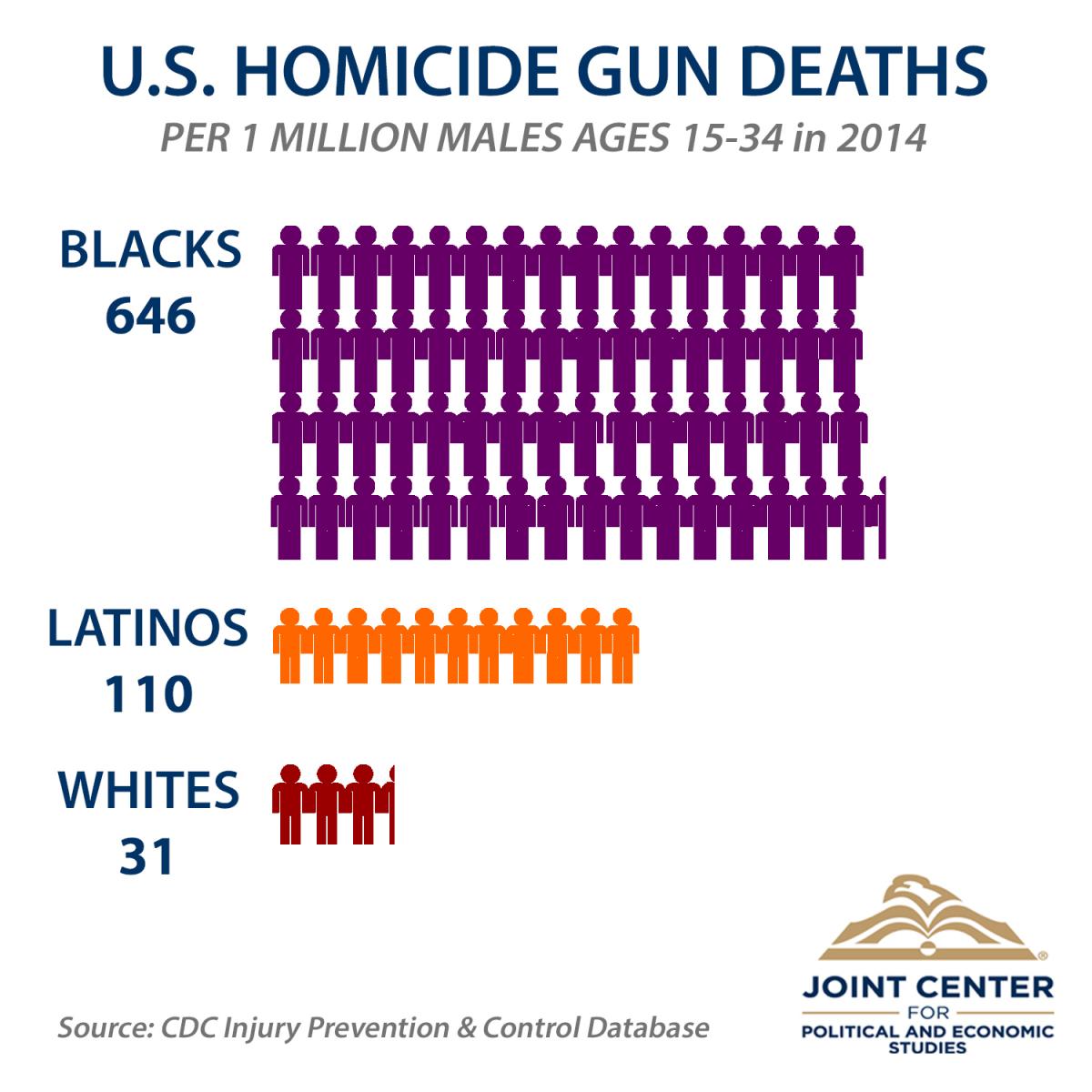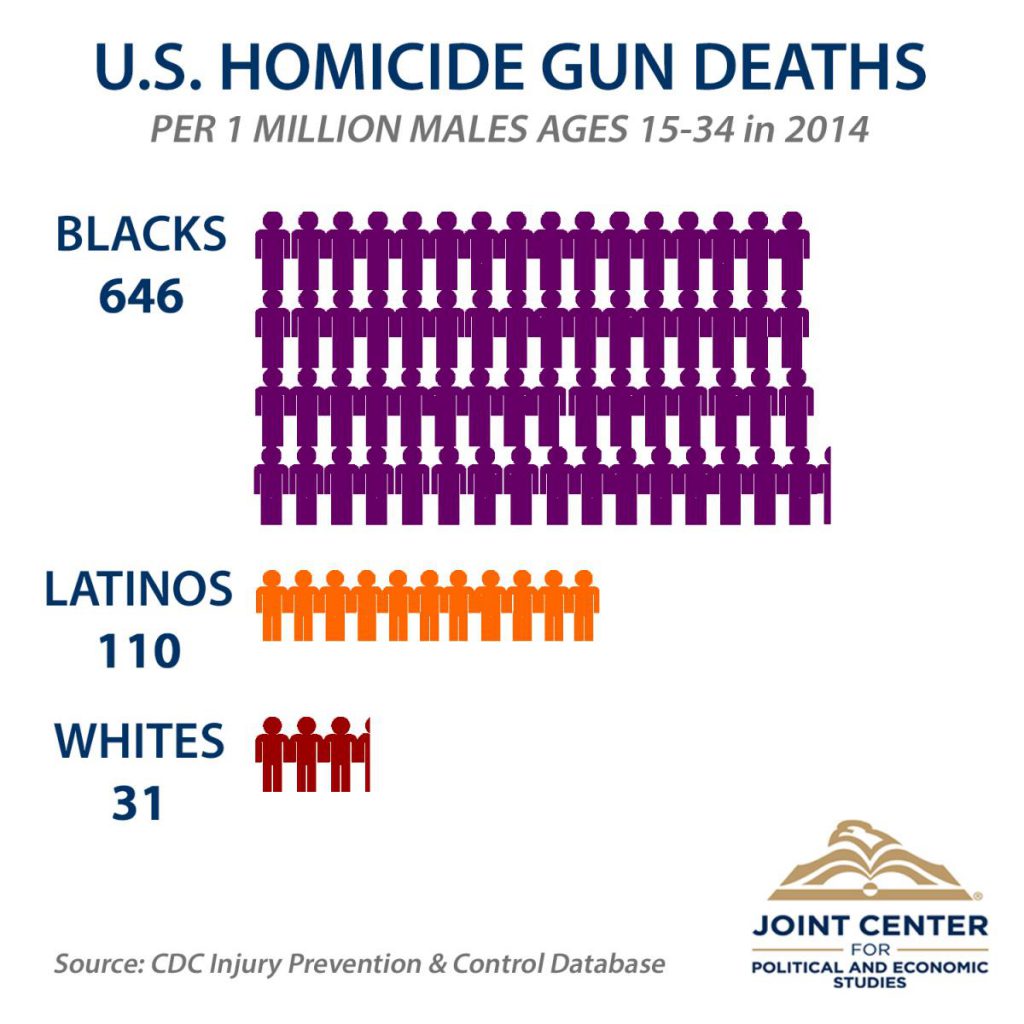Joint Center January 6, 2016President Obama’s
recent actions to improve background checks on gun purchases are important steps in protecting Americans of all backgrounds from mass shootings. We should recognize, however, that mass shootings are a very small percentage of U.S. firearm homicides, and that the President’s actions also work to improve the quality of life in communities of color.
In 2014, African Americans accounted for 13 percent of the U.S. population,
but over 57 percent of the victims of homicide by firearm.
Firearm homicide was the leading cause of death for African American males ages 15-34, and the third leading cause of death for Latino males in the same age group (and would be second if combined with suicides in which firearms were used). Firearms were used in over 91 percent of homicides of African-American males ages 15-34, and in 81 percent of homicides of Latino males in this age group.

In 2015, the Joint Center partnered with the Urban Institute and the Joyce Foundation to organize meetings in three cities: Richmond, VA, Milwaukee, WI, and Stockton, CA. We wanted to hear from religious leaders, formerly incarcerated persons, law enforcement, local elected officials, and other community leaders about the impact of gun violence, mass incarceration, and policing. Easy access to guns was repeatedly cited as a key factor that contributed to gun violence.
Accessibility to guns is also one of many factors in frayed relationships between communities of color and police. Gunfire has been the leading cause of death for officers killed in the line of duty every year from 1995 to 2015.
Granted, many other factors are relevant outside of accessibility to guns. Implicit bias, for example, is a key issue in improper policing. Inadequate economic opportunity and ineffective conflict resolution techniques are related to high firearm homicide rates.
Accessibility to guns, however, is also a key factor. Research shows that states that require all gun buyers to pass background checks, issue licenses to gun owners, and regulate gun sellers put fewer guns in the hands of people committing crimes.
A recent study by Johns Hopkins University found that Connecticut’s handgun permit law reduced firearm homicides by 40 percent. When Missouri repealed a similar law, gun homicides increased by 25 percent.
Gun homicides in communities of color are committed largely with guns that are illegally trafficked, through private transfers without background checks, theft, or via straw purchasers. By addressing these issues, the President’s actions should help law enforcement stem the flow of guns that are doing so much damage to our communities.
President Obama’s executive actions work to keep guns out of the wrong hands by tightening the private sale loophole which allows many gun transactions to occur without federal background checks on purchasers, requiring dealers to report guns that are lost or stolen in transit, and increasing the capacity and efficiency of background checks. While there is much more to do to address gun violence, President Obama’s actions are essential.



